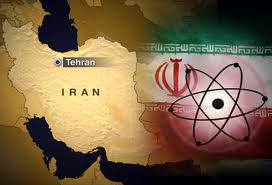 WASHINGTON , DC – The White House launched a harsh attack on supporters of a Senate bill to impose fresh sanctions on Iran, suggesting that they have a hidden goal of drawing the country into another Mideast war.
WASHINGTON , DC – The White House launched a harsh attack on supporters of a Senate bill to impose fresh sanctions on Iran, suggesting that they have a hidden goal of drawing the country into another Mideast war.
If supporters “want the United States to take military action, they should be up front with the American people and say so,” Bernadette Meehan, a spokeswoman for the National Security Council, said in a statement. “Otherwise, it’s not clear why any member of Congress would support a bill that possibly closes the door on diplomacy and makes it more likely that the United States will have to choose between military options or allowing Iran’s nuclear program to continue.”
[Updated at 1:30 p.m. on Jan. 10: A pro-sanctions advocacy group, United Against a Nuclear Iran, pushed back.
“It is wrong for the White House to continue questioning the integrity and motives of anyone who supports more sanctions,” said Mark Wallace, chief executive of the group. “It is nonsensical and out of bounds to say that a bipartisn majority of U.S. senators secretly wants war with Iran.”]
The White House argues that by driving Iran from the bargaining table, the tough new sanctions bill could undermine international negotiations aimed at an agreement to ensure that Tehran’s nuclear program remains peaceful. Many nations fear that Iran, despite its denials, seeks a nuclear weapon capability.
Iran and six major foreign powers, including the U.S., signed an interim deal in November that eases some sanctions and limited the Iranian nuclear program while the two sides pursue a full deal.
The White House statement, issued late Thursday, was the first time the administration had accused sanctions advocates of a concealed agenda.
It escalated the administration’s criticism of powerful Democratic legislators whom the White House needs on many issues, including Sen. Chuck E. Schumer (D-N.Y.), No. 3 in Senate Democratic leadership, and Sen. Robert Menendez (D-N.J.), chairman of the Senate Foreign Relations Committee.
President Obama has identified the Iran nuclear deal as a top foreign policy priority, and he and other top administration officials have conducted an unusual all-out lobbying campaign to stop the bill.
The bill would seek to cut Iran’s all-important oil exports to near zero if the Islamic Republic fails to cooperate in negotiations that are expected to last six months to a year. The measure was introduced last month with 26 supporters, but now has 59, according to the official count. Advocates claim more will soon sign up.
Iran sanctions bills have had an almost unstoppable force in Congress. But the White House knows that Americans’ desire to avoid another Mideast war is also powerful.
One Senate aide said the White House’s statement “is an attempt play the antiwar card: They want to remind the senators that they could be blamed if diplomacy collapses and we’re looking at a bombing campaign.”
Several important lobby groups, including the American Israel Public Affairs Committee, are working hard to build support for the measure. Several liberal pro-Israel groups, including J Street and Americans for Peace Now, are urging lawmakers to vote against it.
Advocates for the bill contend it will increase the likelihood of a successful negotiation by building further economic pressure on Iran. The critics maintain it would torpedo a deal by setting conditions that Iran would never accept.
One section, for example, says Obama can temporarily hold off sanctions only if he certifies that Iran “will dismantle Iran’s illicit nuclear infrastructure.”
“While Iran may agree in the end to dismantle some of its nuclear infrastructure, there is no realistic chance that it will dismantle all of its uranium enrichment capability,” Edward Levine, a longtime Senate Intelligence Committee aide, wrote in an analysis for the Center for Arms Control and Non-Proliferation, an advocacy group.
A final showdown on the bill could come by the end of the month, some lobbyists believe.
Senate Majority Leader Harry Reid (D-Nev.), who has not committed himself on the measure, appears willing to hold off a vote long enough to give the White House a full opportunity to build support. But he may allow a vote by the end of the month, some lobbyists believe.
More than two-thirds of lawmakers in the Iranian parliament, in apparent retaliation, have signed on to a bill that would accelerate Iran’s nuclear program if the Senate bill is adopted.
[Updated at 12:35 p.m. on Jan. 10: Meanwhile, Iranian and Western officials said negotiators are close to an agreement on how they will implement the Nov. 24 interim accord, and only need a blessing from their capitals to complete the work.
Abbas Araqchi, Iran’s nuclear envoy, said the six world powers and Iran should decide in two days whether they have a deal, according to the official IRNA news agency. Meehan said the governments “are looking at what’s been achieved in Geneva, and we hope to finalize the implementation agreement soon.”
The implementation deal will set out, among other things, how the nations will provide Iran temporary sanctions relief and how it will monitor the temporary curbs on Tehran’s nuclear program.]
LA Times

Leave a Reply
You must be logged in to post a comment.